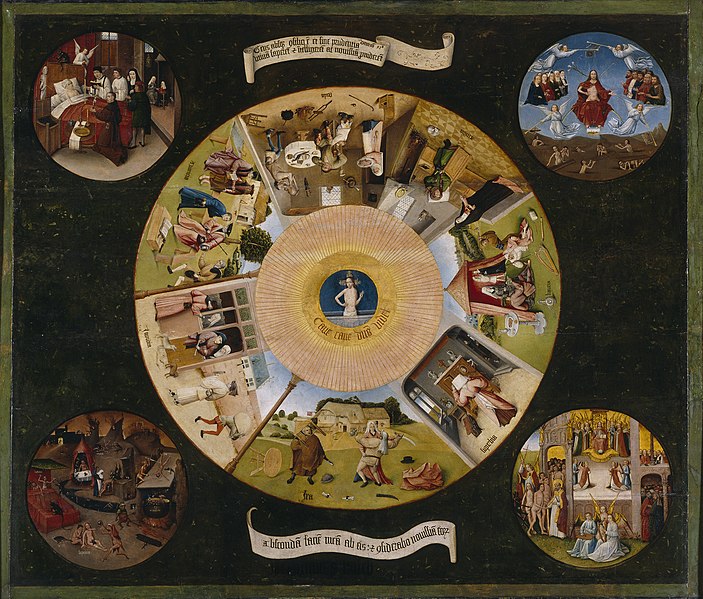Bishops and bloggers live at opposite ends of the talking jobs. Bishops are charged with being perpetually diplomatic, and bloggers . . . well, I’m going to do my end of the job now:
There’s a reason we can’t have good things like religious freedom, and that reason is all the people who played nice about Cardinal McCarrick.
At this point the allegations about the cardinal’s predatory harassment and molestation of seminarians are still just allegations. There’s a reason for that, and before we fall into a spasm of Oh what a fine man, shame on people casting aspersions! let’s talk about the little old ladies at your parish.
I teach parish Bible study, and easily a half or more of the people I happen to work with are single women in about the same age group as the average parish priest. These ladies are hospitable. They love Jesus. They love their priests. And so a question that comes up is: How do I have Father in for dinner without causing a scandal?
They ask this question because they know that a single lady doesn’t just invite Father over to her apartment for a little one-on-one time.
I approve of this caution. So what I typically suggest is that they pair up with another single friend or two and make a group event of it.
How Innocence Behaves
So what would happen if Fr. Hapless and Miss Hospitable started spending enough time together that the rumour mill churned out the news that those two were an item?
If Father’s innocent, we could expect a few things:
- Disbeleiving denials, immediately. “Honey, that’s the most flattering thing I’ve heard in years . . . but no.”
- A change in behavior: Father and Miss H. will both become much more particular about avoiding the appearance of scandal.
- Likely someone will call the bishop, who will look into the matter and see if Father needs some time off for vocational renewal.
And then Father Hapless, no longer as naive as he once was, will make a point in the future of avoiding scandalous appearances. My limited experience with false-accusation cases (just one that I’ve personally dealt with, though I’ve watched other cases from a distance) is that the accused will do what is possible to prove his or her innocence. Any number of the accused’s faults may come to light, but the accused will behave pretty much like the guy in the movie who scrambles to clear his name.
Cardinal McCarrick’s case doesn’t smell like that.
People Who Have Nothing to Gain
The reason the Cardinal has finally been removed from priestly ministry is because of one credible allegation of abusing a minor. The New York Times relates the allegations here. Keep in mind as you read that a 16-year-old is not a little boy. He is much more like a young man. Back in the day, boys of sixteen were known to lie about their age so they could enlist in the military. Physically speaking, a 16-year-old boy has more in common with an 18-year-old than he does with a 12-year-old or a 30-year-old. Hold that thought.
In 2010, Richard Sipe published excerpts (graphic) of the allegations against Cardinal McCarrick from the court records of a then-seminarian who accused McCarrick of molesting him. Sipe, you should know, is literally a professional at the business of testifying against Catholic clergy in abuse cases. It is possible that the similarities between the accusations of McCarrick’s behavior with a minor and the accusations of his behavior towards (legally adult) seminarians is based on pure fabrication: Take the details of one set of accusations and copy them out into a variation that slips under the legal line between minor and adult.
Possible. False accusations tend to follow scripts copied from real crimes.
Here’s Rod Dreher, professional schismatic, talking about his efforts to expose McCarrick as early as 2002. The summary: He had plenty of people willing to talk to him off the record, but no source would come forward and make the accusations in public. No one dared.
Understand that Dreher’s living is made on scandal. Telling you how bad things are in the church is his bread and butter. It is possible that he is entirely fabricating this whole account of his supposed investigative journalism efforts . . . but if so, that lie is bad business calculus. His market doesn’t want to read fiction, they want real grit. Pretending you almost got the grit is not a winning lie.
The other journalist talking about her efforts to break the McCarrick case is Julia Duin with Get Religion. Like Dreher, she had sources who wouldn’t go on the record, so she ended up at a dead end. In contrast to Dreher, Duin’s market is being the person who sets the record straight on religion reporting. Her job is to wade through the hype and get down to the facts. If she’s lying about her investigation of McCarrick, she’s on a mad quest for unemployment.
Not likely.
What It’s Like at Seminary
The allegations against McCarrick are nobody’s favorite. If you are tired of seeing the Church dragged through the mud, the instinct is to look for proof of innocence. If you are the average pewsitter, probably not gay, probably used to overlooking your parish priest’s little faults, what you want is for all this to be Not That Bad. If you are, whether from within the Church or outside of it, working hard to make homosexuality anodyne, then what you want are clerics who, if they must sin, quietly carry on some personal affair with a sympathetic twist to it. What you don’t want is for The Gay Cardinal to be promiscuous and predatory, forcing himself on young men subject to his power.
What you certainly don’t want is for this kind of predatory behavior to be widespread.
So here’s the late Michael Dubruiel blogging about predatory homosexuality among the clergy. He’s writing in the same era that Dreher and Duin were investigating McCarrick, but reporting on events that happened in the 1980’s and 90’s:
And finally, here he shares the comments of a priest, the original is no longer available, talking about the futility of going to your bishop when you experience all this:
It does no good to go to the bishop when the bishop is the problem! The chancery staff, the Monsignori, were appointed by him.
. . . The few priests foolish enough to speak openly about the scandal of homosexuality in the priesthood have soon learned that they will receive no help or support from anyone. The people don’t want to believe it. The newspapers won’t print it. The district attorney won’t prosecute, after all, his is an elected position, and the only thing more pointless than writing to the bishop is writing to “Rome”! Only in the area of pedophilia have we been able to enlist the aid of lawyers and multi-million dollar lawsuits to help keep some children a little safer.
Keep in mind that Michael Dubruiel was blogging all this while he and his wife were working (she still is) in mainstream Catholic publishing. He had no motive whatsoever to pick fights with the Church. The evidence is ample that McCarrick’s behavior is not an aberration.
Priests Don’t Come from Nowhere
As you read the official statements from Newark, Washington, New York, Metuchen, and the USCCB, think about the men writing these words. Every single one of them has a career built during what we might call The McCarrick Years, but, as we’ve seen, it’s not just one guy. It was a whole way of being Catholic clerics, and it was international.
What does it take to be a seminarian, then priest, then bishop, with a kingmaker who wants to put his hands in your pants? One way or another, you have to be a guy who can tolerate the system.
Some of these men may be singing a Te Deum as we speak, that the criminal they prayed for years would be convicted has finally been brought to some sort of justice. Others may be wondering if they’re next to get caught. We can imagine the bulk fall somewhere in between. To be a priest is to be a company man: A guy who can get along, keep his head down, not make waves.
Is there any wonder not a single priest would come forward and publicly denounce McCarrick? Of course not. To be ordained is by definition to be a guy who managed to make his bishop happy.
You Can’t Have Freedom of Speech and Slavery to Silence Both
If you take a look at the pedigrees of your local bishop and parish priests, and check them against the dioceses and seminaries already on the record as having been hotbeds of predatory homosexuality*, you may start to understand a few things.
Consider, for example, the parish or diocese that gives lip service to praying for vocations, but does not actually do any of the things that would form up young men capable of discerning a vocation at eighteen. It is entirely possible a generation of boys is not being ignored but spared: Wait until the boy’s not so nubile, when he’s a got a better chance of being able to dodge Fr. Handsey and Bishop Bedsheets. A late vocation may well be a much safer vocation.
But silence only takes you so far.
Mark Shea used to have a whole genre of posts called Gay Brownshirts on the March. He was wrong to use such inflammatory language. He was correct in seeing that bit by bit Christian beliefs about human sexuality were slowly being outlawed.
As we launch what was in previous years the Fortnight for Freedom (now apparently scaled back to “Religious Freedom Week”?), the US Catholic bishops are in an awkward position. You can’t demand the right to proclaim your faith while simultaneously refusing to proclaim your faith. Diplomacy only takes you so far. The freedom we are fighting for isn’t the freedom to keep your head down and watch your own back, hoping the predator on the loose doesn’t hurt too many people too badly.
There comes a time when children from abusive homes have to recognize they’ve been avoiding and enabling and adopting self-sabotaging behaviors in their scramble for survival. The boy reaches manhood, and he’s either going to spend the rest of his life behaving like a scared little boy, or he’s going to decide to step up and do what it takes to protect the innocent and vanquish the evil.
This requires a willingness to sacrifice.
Gentleman of the clergy, we need you to come out and fight for your Church.
Updated to share a couple relevant links:

Artwork courtesy of Wikimedia, Public Domain.
*I’d like to clarify here that I am not singling out same sex attraction as some kind of special evil worse than any other sin. A seminary is more likely to attract homosexual predators than, say, true pedophiles or heterosexual predators, for the simple reason that they are where bunches of adult men gather. If bishops were in the business of running the Junior Women’s Club, it would have attracted predators lusting after ladies with monogrammed tote bags. But they’re not.




















